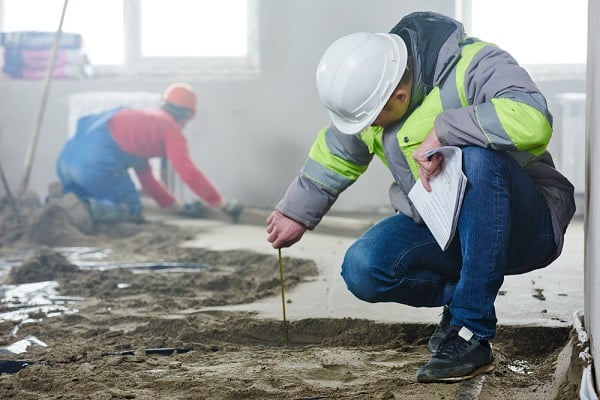Concrete slabs are rectangular slabs made out of concretes, the length and breadth of which can be adjusted as per choice or specification but the depth is less. These slabs are widely used for constructing roofs and floors, and provide a great flooring solution.

The slabs vary greatly in design and the bottom sides of these slabs are usually changed keeping the topside flat. They are shallow in depth and the structures are reinforced. These are widely used in construction industries in building floors. Usually these vary in thickness from 10-50cms. Scan & Locate concrete x-ray are safe and preferred for scanning purposes.
Different Variation of Cement Slabs:
Concrete slabs are of many different types such as flat slabs, one or two-way slabs etc. One-way slabs are typically larger and supported from all four sides. The two-way slabs are supported from four directions and in addition to that a steel reinforcement remains perpendicular to the four sides. In case of flat slabs, they are devoid of beams and they remain lying on columns directly. These flat plates are better options for fire protection and are blessed with simplicity. These are most basic fundamental structures that are most widely used for flooring solutions.

Favourable Sides of Using Cement Slabs in Flooring:
The key benefits of using concrete slabs as flooring options are as follows:
Unfavourable Sides of Using Cement Slabs in Flooring:
Like any other object the cement slabs too have a few cons. Once concrete slabs become defected they are almost impossible to rectify. In case of repairing the floor patchwork-repairing system will not yield any satisfactory results on this type of floorings. Though the floors are thermally optimized but they are not optimized for soundproofing. Concrete flooring needs skilled labours to be casted as once cast further changes are very difficult to be done. Hence, it is best to consider these pros and cons before taking a final decision.
About the author: Joseph Webb is an excellent blogger and philosopher, His keen observation to provide useful information which help readers to get more idea. He is the author of many active blogs like Real estate, concrete slabs. Follow him on Pinterest, @aussiesmag, +JosephWebbs and Facebook.